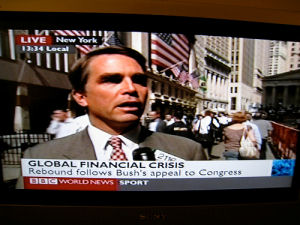Mutualism and social democracy
The role of the mutual sector in forging a strong economy and a more equal society is fast becoming hotly contested territory in British party politics. In the wake of the most severe global depression for more than eighty years and the search for viable and practical alternatives to neo-liberalism, politicians across the ideological spectrum have ostensibly vied to champion and take ownership of the mutualist cause. The values and institutions of mutualism have the potential to act as a vehicle for a new politics of the public interest after the financial crisis, or so the argument goes. For the left in particular, mutualism offers an alternative to the Coalition government’s invocation of ‘the big society’. Nonetheless, the operating frameworks …

News Media: Outside America, the future is much brighter
In the US debate over news there is an assumption among many that the Internet is killing news organisations. People point to the worrying figures about the numbers of journalists that have been laid off (with net newsroom employment down by more than 10,000 since 2007), the difficulties facing city and state newspapers, and to the dramatic decline of ad revenues. There’s no denying that these developments are worrying. But focussing on the US picture only tells a very partial part of the story about the relation between the news industry and the internet. The recent book that we produced at the Reuters Institute on The Changing Business of Journalism and its Implications for Democracy reveals that the US newspaper …
Effective governance
The credit crunch and the disillusion with parliamentary democracy prove that there is a problem with the way we govern ourselves, as organisations and states. I would like to propose a solution which, if implemented, would go a long way to providing effective governance, economic growth, and social stability. THE PROBLEM All our existing institutions and regulations failed to prevent the credit crunch, the Madoff and Stanford frauds, the obvious risk of bankers lending to people who can’t afford to repay, and the collapse of numerous financial organisations. The banking crisis was caused by banks knowingly lending to people who couldn’t repay; therefore the crisis was predictable. So why did they do it? Because current governance processes don’t work. In …

Nation States, Capitalism and the Crisis
Numerous questions pose themselves for political economists about the crisis – enough (never waste a good crisis) to keep PhDs engaged for a generation. But in my view there are two big picture questions which modern comparative political economy needs to answer. One is why the epicentre of the crisis was in Wall Street and the City of London. The other is this: the crisis occurred as a result of failures in the main regulatory frameworks – the financial and the macroeconomic – which govern much of the workings of advanced economies. Why, in sharp contrast to the 1930s, have these frameworks changed little since the crisis? These questions raise major issues for our understanding of modern capitalism and its …
Adam Smith, political theorist?!
On March 13th, 2007, the Bank of England issued a new series of bank notes. On the £20 note Adam Smith, the Scottish founder of the discipline of economics, replaced the composer Edward Elgar. If portraits on bank notes tell us anything about the spirit of their time, this seems to be a case in point. Smith’s portrait seems appropriate for a period in which the optimism about efficient free markets had reached a peak. But the cliché of who Adam Smith is, and the 18th-century scholar whom one encounters when turning to his writings in their entirety, are at a considerable distance. Of course it would be foolish to deny that Smith was an economist, if only because defining …

Will Pakistan Exist in 2050? Will India?
Amidst a depressing assessment of the ruin wrought by Pakistan’s floods, The Economist nevertheless pronounced a vote of confidence in the country’s survival: “Pakistan is not about to collapse: a prospect first aired at its bloody creation and dusted off for every war, coup and calamity that has followed.” (Leader, 18-24 September 2010). Indeed, India, now much feted as an “emerging power” had also been written off by many at its amputated start. So had Bangladesh when it came into being in 1971, famously dismissed by Henry Kissinger as a “basket case”. All three have managed to survive endless conflict, poor governance and natural disasters, and some of their citizens have notched up world-class achievements in a variety of fields, …









